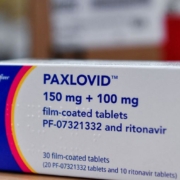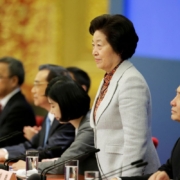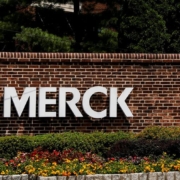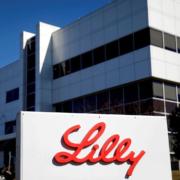Summit declares NSCLC victory over Keytruda, analysts advise caution with China-only data
Summit declares NSCLC victory over Keytruda, analysts advise caution with China-only data
Summit Therapeutics on Sunday revealed more data from the Phase III HARMONi-2 trial, demonstrating that its investigational bispecific antibody ivonescimab outperformed Merck’s blockbuster PD-1 inhibitor Keytruda (pembrolizumab) as a first-line treatment option in patients with advanced non-small cell lung cancer.
After a median follow-up of nearly nine months, median progression-free survival (PFS) in ivonescimab-treated patients was 11.14 months, versus just 5.82 months in Keytruda counterparts. Ivonescimab cut the risk of disease progression or death by nearly 50% compared with Keytruda, an effect that was strongly statistically significant, with a p-value of less than 0.0001.
The findings held up in various subgroup analyses, including in patients with high and low expression levels of the PD-L1 protein, as well as in squamous and non-squamous disease groups.
Summit’s bispecific also outperformed Merck’s blockbuster in terms of key secondary endpoints. Overall response rate was 50% in patients treated with ivonescimab, versus 38.5% in the Keytruda arm. Disease control rates in the respective treatment groups were 89.9% and 70.5%.
Overall survival (OS) data were not yet mature at the time of the analysis. Summit presented these data at the International Association for the Study of Lung Cancer’s 2024 World Conference on Lung Cancer.
“HARMONi-2 clearly demonstrates that ivonescimab has the potential to be the next generation in PD-1 directed immunotherapy,” Summit CEO Maky Zanganeh said in a statement, noting that Sunday’s results highlight the potential of ivonescimab in lung cancer “and prospectively other tumors.”
With these findings, Summit will take ivonescimab into the multi-regional, late-stage HARMONi-7 study, set to start in early 2025, Zanganeh said.
Despite Sunday’s promising readout, analysts recommend a more level-headed interpretation of Summit’s data, with BMO Capital Markets’ Evan Seigerman arguing that ivonescimab is “not yet the Keytruda slayer.”
There are several reasons for the analyst’s ambivalence, not least of which is that HARMONi-2 was conducted entirely in China.










